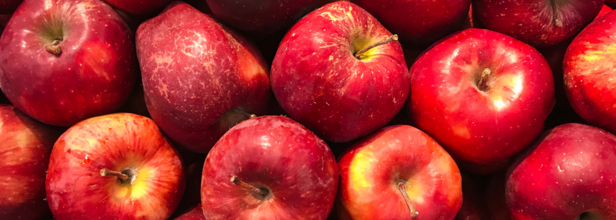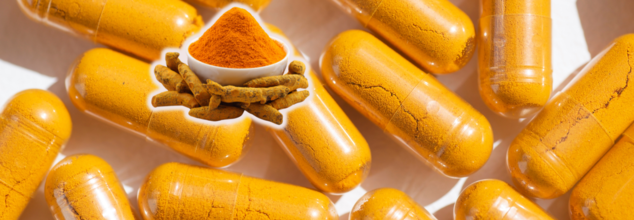- Health Conditions A-Z
- Health & Wellness
- Nutrition
- Fitness
- Health News
- Ayurveda
- Videos
- Medicine A-Z
- Parenting
- Web Stories
Your Favorite Junk Foods Could Be Stealing 36 Minutes Of Life Per Bite

Credits: Canva
A recent study from the University of Michigan has revealed unsettling insights into the hidden cost of some of our most beloved everyday foods. That fizzy can of cola or a quick bite of a hot dog might be taking more than just a toll on your waistline—it could be shaving minutes off your life.
What the Study Found
Researchers analyzed more than 5,800 commonly consumed foods and calculated their impact on human health and the environment. Each food item was evaluated for its nutritional quality, links to disease, and long-term effects on life expectancy.
Here’s what they discovered:
One hot dog: Could cut 36 minutes from your life.
A can of Coke: May reduce it by 12 minutes.
Breakfast sandwiches and eggs: Linked to a 13-minute drop each.
Cheeseburgers: Associated with a 9-minute reduction.
Bacon strips: Cost around 6 minutes.
These calculations are based on nutritional risk factors, including salt, sugar, trans fats, and processed meat content—all of which are known contributors to chronic diseases.
The Role of Ultra-Processed Foods (UPFs)
The main culprits identified are ultra-processed foods (UPFs)—mass-produced products that often contain high levels of refined sugars, salt, unhealthy fats, additives, and preservatives. While undeniably convenient and flavorful, UPFs have been increasingly linked to various long-term health issues.
A separate study published in the British Medical Journal earlier this year supported these findings, highlighting some alarming statistics related to heavy UPF consumption:
- 50% higher risk of dying from heart-related illnesses
- Up to 66% greater chance of developing heart disease
- 12% increase in type 2 diabetes risk
- 48–53% higher likelihood of mental health issues such as anxiety and depression
Experts say these numbers confirm what public health advocates have long warned—that the so-called “Western diet” rich in processed and packaged foods is harming global health. And this dietary pattern is no longer limited to the West; it’s spreading rapidly across countries like India.
Not All Foods Take Time—Some Add It
Thankfully, the same University of Michigan study also identified foods that add time to your life expectancy:
Fatty fish (like salmon): Can add 32 minutes per serving
Fruits, vegetables, legumes, and nuts: Consistently associated with extended longevity
Even some cheeses, like cheddar and brie, were found to offer surprising benefits due to their fermentation process. These cheeses contain beneficial bacteria and nutrients that may help reduce the risk of diseases such as liver cancer.
The Sugary Drink Problem
Sugary drinks like cola remain a major concern. A single can of Coke contains around 39 grams of sugar, far exceeding the American Heart Association’s daily recommended limit. Excess sugar intake contributes to obesity, insulin resistance, type 2 diabetes, and cardiovascular disease.
So, when the study links one can of Coke to a 12-minute life reduction, it's not hyperbole—it's rooted in science that shows how excess sugar disrupts the body's systems over time.
A Public Health Wake-Up Call
Perhaps the most worrying part of the findings is just how normal these foods have become. In many urban or low-income settings, ultra-processed meals, fizzy drinks, and packaged snacks are marketed as affordable, quick solutions for busy lives.
But the hidden cost is significant—not just in minutes lost from our lives but in long-term healthcare expenses, reduced quality of life, and an increased burden on public health systems.
According to the World Health Organization (WHO), non-communicable diseases like heart disease, diabetes, and cancer account for 74% of global deaths, and diet is a major contributing factor.
Is There Any Truth Behind The Saying, 'An Apple A Day Keeps Doctors Away'?

Credits: Canva
Apples are one of the most widely consumed fruits in the world, with global production nearing 100 million tonnes annually.
Available in a variety of colors, flavors, and textures, apples have long been praised for their health benefits.
The saying, “An apple a day keeps the doctor away,” dates back to a 19th-century Welsh proverb—but how much truth lies behind it?
Modern research offers a deeper understanding of the nutrients apples contain, and whether these contribute meaningfully to disease prevention or overall health.
A Nutrient Powerhouse
Apples are rich in phytochemicals, especially polyphenols such as flavanols, anthocyanins, and phloridzin. These compounds are known for their antioxidant properties, which help neutralize free radicals—molecules that can damage cells and contribute to chronic illnesses like cancer, diabetes, and heart disease.
Flavanols have been linked to maintaining healthy body weight and reducing the risk of heart disease. Anthocyanins, which give red apples their color, are particularly associated with improved heart health. Phloridzin, unique to apples, has shown potential in helping regulate blood glucose levels by reducing sugar absorption.
In addition, apples are a good source of dietary fibre, especially pectin, which lowers LDL or "bad" cholesterol and helps regulate blood sugar and fat absorption from food.
What the Research Shows
Numerous studies have explored the link between apple consumption and improved health outcomes. A 2017 review combining five studies found that regular apple eaters had an 18% reduced risk of developing type 2 diabetes. Another analysis in 2022 of 18 different studies concluded that eating apples or apple-derived products like juice consistently for more than a week could lower cholesterol levels.
Evidence also suggests apples are beneficial in reducing cancer risk. Phytochemicals present in apples are thought to play a role in lowering the likelihood of developing certain cancers, although no single fruit can offer complete protection.
How Apples Compare to Other Fruits
While apples may not contain significant amounts of vitamin C, iron, or calcium, they do offer a strong antioxidant punch. Some researchers suggest that apples have the second-highest antioxidant power among fruits. They also provide a noteworthy portion of phenolic compounds, another class of health-boosting phytochemicals. One study found that Americans get about one-fifth of their total phenolic intake from apples alone.
These health-promoting compounds are not exclusive to apples; many fruits and vegetables contain polyphenols. However, apples are particularly celebrated due to their accessibility, long shelf life, and widespread availability, making them an easy and sustainable health choice for many.
Can One Apple a Day Really Keep the Doctor Away?
A study conducted in 2015 set out to answer this age-old question. Analyzing data from around 9,000 adults in the United States, the researchers found that apple-eaters were generally healthier and less likely to rely on prescription medications. However, the difference in doctor visits between those who ate apples and those who didn’t was not statistically significant when lifestyle and socioeconomic factors were taken into account.
This suggests that while apple-eaters may indeed be healthier overall, apples alone are not enough to drastically reduce the need for medical visits. More accurately, one might say, “An apple a day keeps the pharmacist away.”
How Many Apples Make a Difference?
Further studies suggest that consuming more than one apple a day might provide more noticeable health benefits. In a small trial, participants who consumed two apples daily over eight weeks saw significant reductions in cholesterol. Another study involving overweight women found that eating three apples per day led to weight loss and better blood glucose levels, though the latter result was not statistically significant upon follow-up.
How to Get the Most from Your Apple
To maximize health benefits, it is recommended to eat apples with the skin on, as most polyphenols are found in the peel. Additionally, ancient or heirloom varieties of apples may contain higher levels of beneficial compounds compared to modern varieties, which are often bred for sweetness and appearance rather than nutritional value.
Interestingly, the color of the apple—red or green—does not significantly impact its health value, as both contain beneficial polyphenols.
Woman Ends Up In ER After Taking Turmeric Supplement That Caused Liver Damage – How 'Natural' Supplements Can Be Dangerous?

Credits: Canva
Katie Mohan thought she was doing something good for her body. Like millions of others, the 57-year-old from New Jersey had seen a doctor on Instagram rave about turmeric’s anti-inflammatory properties. Joint pain and inflammation are common issues, and turmeric—a golden spice rooted in ancient wellness practices—seemed like a natural fix. What could possibly go wrong? Quite a bit, it turns out.
After weeks of taking megadoses of turmeric supplements—2,250 mg a day, more than ten times the World Health Organization’s recommended limit—Katie landed in the hospital with severe liver damage. Her case isn't isolated, and it raises urgent questions about how unregulated supplement use is silently harming thousands, especially when mixed with misleading online wellness claims.
Katie began taking turmeric capsules for general inflammation after seeing health advice from a popular wellness influencer. Like many, she believed that “natural” meant “safe”—especially when compared to synthetic medications.
But the problem wasn’t turmeric itself—it was the dose. According to WHO guidelines, a safe upper limit is around 204 mg a day for someone who weighs 150 pounds. Mohan was taking more than ten times that, unaware of the toxic potential.
Within weeks, her body started sending distress signals: stomach pain, fatigue, nausea, and dark urine. Classic signs of acute liver injury.
Blood tests revealed her liver enzymes were 60 times the normal level—a severe red flag for hepatologists. At NYU Langone Hospital, her specialist, Dr. Nikolaos Pyrsopoulos, told NBC News she was “one step away from needing a liver transplant.”
Turmeric
Turmeric has long been celebrated in both traditional medicine and modern wellness for its active compound, curcumin, known for anti-inflammatory, antioxidant, and possibly even anticancer properties. It's generally safe in culinary amounts—think curries, teas, or golden lattes.
But here's the twist- supplements aren’t the same as food. When curcumin is extracted, concentrated, and supercharged—often with black pepper (piperine) to increase absorption—it becomes a potent bioactive agent. Piperine can boost turmeric absorption by 2,000%, making curcumin flood the body in ways our systems weren’t designed to handle.
While curcumin toxicity is rare, the increasing concentration and frequency of supplement use has changed the equation. Doctors now say turmeric is among the most common herbal causes of liver injury in the U.S.
Katie’s case isn’t an anomaly. According to a 2024 study published in JAMA Network Open, cases of drug-induced liver injury (DILI) caused by herbal and dietary supplements nearly tripled between 2004 and 2014 and the trend is still rising.
Lack of regulation. Unlike pharmaceuticals, supplements aren't held to the same safety standards. Doses aren’t standardized. Labels are often vague. And consumers are left to self-diagnose and self-medicate—usually based on hearsay, trends, or influencers. Among the most commonly implicated supplements are:
- Turmeric
- Green tea extract
- Ashwagandha
- Garcinia cambogia
- Red yeast rice
- Black cohosh
Combined, these six supplements are used by over 15.6 million Americans each month, many without medical guidance.
Why the Liver Takes The Toll?
The liver is your body’s primary detox organ. Everything you ingest—medication, supplements, alcohol, even food—is filtered and broken down here. When supplements like turmeric are taken in high doses, especially those enhanced with absorption boosters like piperine, they can overwhelm the liver’s metabolic pathways.
In some cases, high curcumin concentrations may even trigger autoimmune-like responses, where the body’s own immune system attacks the liver, mistaking it for a threat. The symptoms of turmeric-induced liver damage are often subtle at first:
- Fatigue
- Nausea
- Poor appetite
- Dark urine
- Jaundice (yellowing of the skin or eyes)
Many people don’t connect these to their supplements until it's too late. One of the most concerning aspects of Katie’s case is where she got her medical advice: not from her doctor, but from Instagram.
In a culture increasingly driven by influencers, it's easy to get swept up in the wave of quick fixes and natural cures. But the line between science and marketing is getting blurry and it’s making people sick.
According to the CDC, more than 5 million Americans currently live with some form of liver disease, and nearly 60,000 die of liver failure each year. Supplements may seem harmless, but when misused, they can compound existing health risks, especially for those with underlying conditions.
Katie spent six days in the hospital. Thankfully, her liver responded to treatment after she stopped the supplements. The liver is a forgiving organ, but the experience was harrowing.
Health Experts Warn Against Gen Z’s New ‘Fridge Cigarette’ Habit

Credits: Canva
The afternoon cigarette break is getting a makeover among Gen Z—but instead of lighting up, young adults are cracking open a chilled can of Diet Coke.
This summer, TikTok has exploded with videos celebrating what users are calling the “fridge cigarette.” The term doesn’t involve tobacco or nicotine, but a cold can of diet soda—most often Diet Coke—that serves as a ritualistic pick-me-up for 20-somethings navigating workdays and stress.
The videos are everywhere. One TikTok simply says, “Just a little something to take the edge off,” with a Diet Coke in hand. Another reads, “Time for my afternoon fridge cigarette.” A third sums up the vibe perfectly: “Fridge cigarette after a long day.”
So what’s behind the obsession?
A Ritual That Feels Good
Psychotherapist Jonathan Alpert, based in New York City, says the appeal is less about the drink and more about the ritual. He told Fox News Digital that Diet Coke is acting as an “emotional stand-in”—a way for young adults to pause, reset, and reward themselves in the middle of a hectic day.
“It’s a small ritual that offers structure or comfort,” Alpert said. “Opening the fridge, hearing the can crack open, feeling the chill—it’s sensory. Much like smoking, it gives people a quick burst of stimulation or relief.”
In stressful or in-between moments, this small act becomes a grounding habit. And in many ways, choosing soda over cigarettes is a healthier swap. But experts caution that it’s not entirely harmless.
Also Read: Why Stopping Antidepressants Can Be Harder, Here's How Withdrawal Could Last Longer Than You Think
Trading One Crutch for Another?
Alpert warns that turning to Diet Coke daily for emotional regulation could reinforce dependency—especially if it’s being used to manage anxiety, suppress appetite, or avoid stress.
Wisconsin-based naturopathic doctor Debra Muth echoed his concerns. “This is really just trading one bad habit for another,” she said.
Muth explained that the appeal isn’t the soda or even the sweetness—it’s dopamine, the brain’s feel-good chemical. “Your brain isn’t asking for aspartame or nicotine. It’s asking for dopamine,” she said. “Artificial sweeteners like aspartame cross the blood-brain barrier and can actually make neurotransmitter depletion worse. You’re borrowing from tomorrow’s brain chemistry.”
Diet Coke: A False Sense of Reward
What worries Muth most is that both nicotine and Diet Coke hijack the brain’s reward pathways. “You get the same temporary ‘hit’ of satisfaction, but it’s false. It doesn’t actually solve the emotional or mental need,” she explained.
And while the Diet Coke break might offer a moment of calm, it’s not something Muth would recommend for smokers trying to quit either. “You’re still reinforcing the same pattern—reaching for a quick fix instead of addressing what your brain and body truly need.”
Instead, she recommends more sustainable ways to support the brain’s natural dopamine system: “Amino acids like L-tyrosine, balanced blood sugar, and proper stress management can go a long way in restoring your brain’s reward circuit.”
The “fridge cigarette” may be fizzy, fun, and TikTok-famous—but experts say it's best to be mindful of why you’re reaching for that cold can. Rituals are comforting, but when they become emotional crutches, they can quietly build unhealthy habits over time.
A chilled Diet Coke now and then isn’t the enemy—but relying on it to “take the edge off” every day might be something worth pausing to think about.
© 2024 Bennett, Coleman & Company Limited

